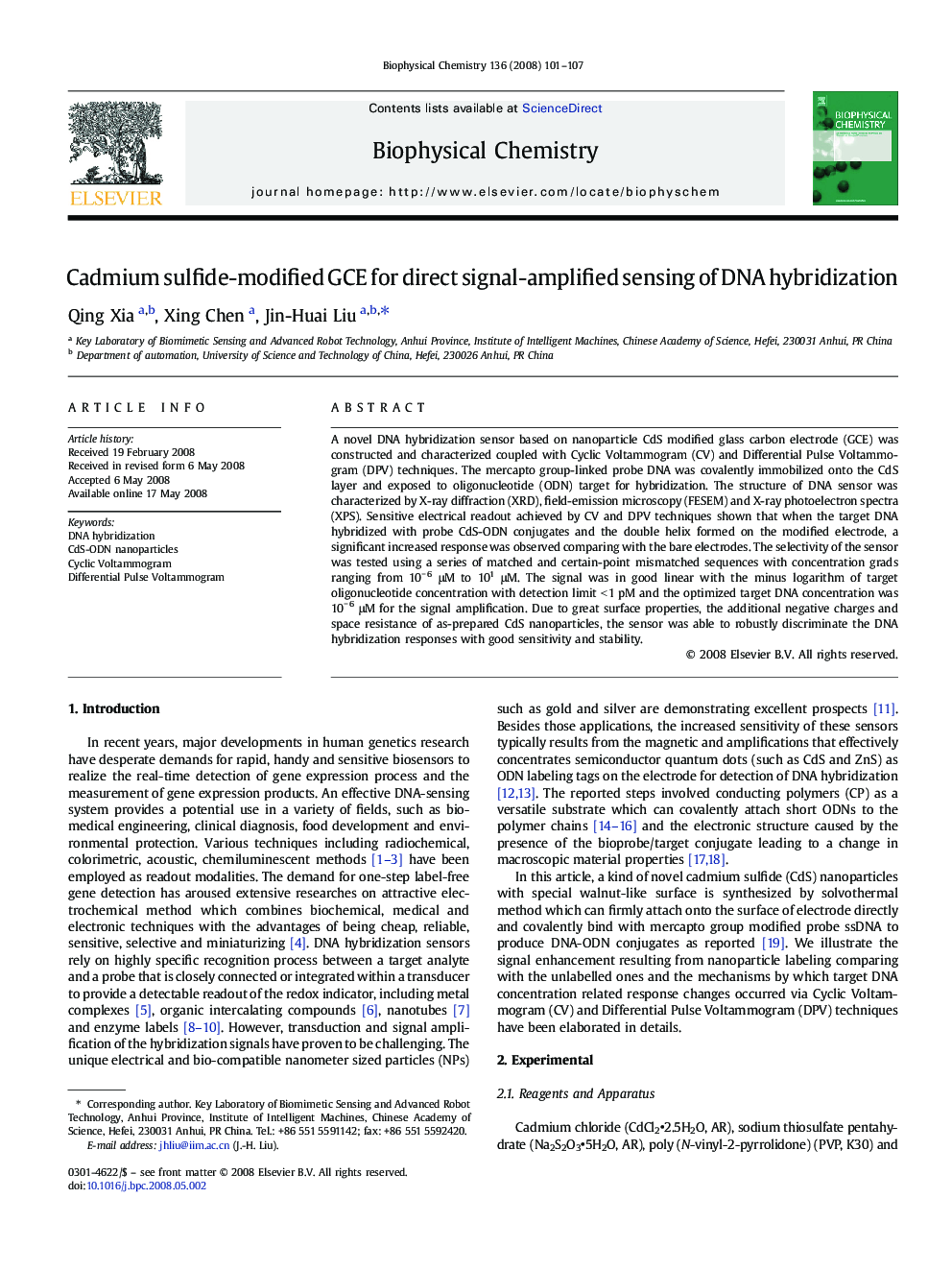| Article ID | Journal | Published Year | Pages | File Type |
|---|---|---|---|---|
| 5371822 | Biophysical Chemistry | 2008 | 7 Pages |
A novel DNA hybridization sensor based on nanoparticle CdS modified glass carbon electrode (GCE) was constructed and characterized coupled with Cyclic Voltammogram (CV) and Differential Pulse Voltammogram (DPV) techniques. The mercapto group-linked probe DNA was covalently immobilized onto the CdS layer and exposed to oligonucleotide (ODN) target for hybridization. The structure of DNA sensor was characterized by X-ray diffraction (XRD), field-emission microscopy (FESEM) and X-ray photoelectron spectra (XPS). Sensitive electrical readout achieved by CV and DPV techniques shown that when the target DNA hybridized with probe CdS-ODN conjugates and the double helix formed on the modified electrode, a significant increased response was observed comparing with the bare electrodes. The selectivity of the sensor was tested using a series of matched and certain-point mismatched sequences with concentration grads ranging from 10â 6 μM to 101 μM. The signal was in good linear with the minus logarithm of target oligonucleotide concentration with detection limit < 1 pM and the optimized target DNA concentration was 10â 6 μM for the signal amplification. Due to great surface properties, the additional negative charges and space resistance of as-prepared CdS nanoparticles, the sensor was able to robustly discriminate the DNA hybridization responses with good sensitivity and stability.
